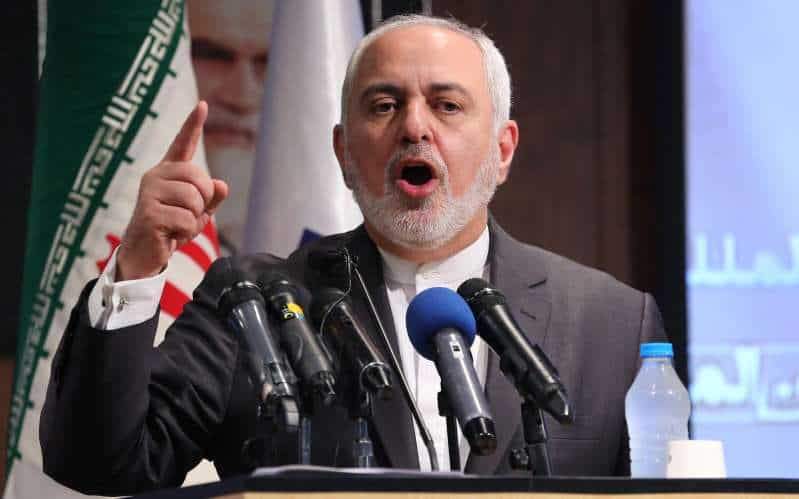US denies visa to Iranian Foreign Minister Zarif before UN Security Council meeting

The U.S. denied Iran's foreign minister a visa to attend a United Nations meeting scheduled for later this week, the regime's top diplomat said in news interviews Tuesday.
Foreign Minister Mohammed Javad Zarif told NPR that he was scheduled to deliver an address when the U.N. Security Council meets Thursday but that he was told the State Department had informed the U.N. that there was not enough time to process his request for a visa, which he said he first submitted 25 days ago.
Reuters and The Associated Press each cited an unnamed U.S. official who confirmed Zarif's claim that his request could not be processed in time.
Pompeo declined to comment on Zarif's visa during a news conference at the State Department on Tuesday but he said the U.S. would "always comply with our obligations under the U.N. requirements."
"We don't comment on visa matters," Pompeo said. "So, I can't add much more to this issue of Foreign Minister Zarif's travel to the United States."
Zarif's visa problems come amid escalating tensions after the U.S. killed Iran's top general in a drone strike on Friday. Zarif called the killing of Gen. Qasem Soleimani a "cowardly terrorist operation" in a CBS News interview on Tuesday.
Iran has vowed to retaliate for Soleimani's death. Zarif told CBS that Iran would respond in a "clear and proportionate way" at a time of its choosing.
He said the denial of his visa "was not unexpected."
"But my question is: What are they afraid of?" he said.
The U.S. said Soleimani was in Iraq to plot attacks on Americans with Iran-backed militias and that his killing was justified because he represented an imminent threat. Zarif told CNN that Soleimani went to Baghdad "to contain the anger in Iraq following the United States' murder of about 25 Iraqis," referring to U.S. airstrikes that killed members of a militia the U.S. blamed for a rocket attack that killed an American contractor.
Iraqi Prime Minister Adel Abdul Mahdi has made a similar assertion and said that he was scheduled to meet with Soleimani on the day he was killed.
"General Soleimani was the greatest force for the stability in Iraq," Zarif claimed.
"Zarif is a propagandist of the first order," Pompeo said in response, calling the foreign minister's claim that Soleimani's Iraq trip was peaceful "fundamentally false."
National security adviser Robert O'Brien appeared to contradict the State Department's explanation that Zarif's visa application could not be processed in time.
"I don't think Secretary Pompeo thought that this was the right time for Mr. Zarif to come to the United States. And whenever he comes to New York, he spreads propaganda," O'Brien said during an appearance on "Fox & Friends" Tuesday.
O'Brien implied denying Iran's top diplomat the ability to visit the U.N. was acceptable because Iran had violated international norms after the 1979 Revolution.
"I actually find it somewhat ironic that Mr. Zarif wants to take advantage of the diplomatic niceties of being able to come to New York and come to the U.N. when his Revolution was born in the taking of 52 American diplomats hostage in Iran and holding them for 444 days," O'Brien said. "That undermined every principle of diplomacy."
"I think he will be fine missing that meeting," O'Brien said, suggesting Zarif could call into the meeting or "participate by video teleconference."
"His voice will be heard if he wants to be heard," O'Brien said.
Zarif said in a tweet that his denial of a visa violated the 1947 U.N. Headquarters Agreement. But, like O'Brien, he said keeping him from the Security Council meeting would not stop his voice from being heard.
"They fear someone will go there and tell the truth to the American people," Zarif said, according to the Associated Press. "But they are mistaken. The world is not limited to New York. You can speak with American people from Tehran, too, and we will do that."
Photo: © Atta Kenare, AFP via Getty Images Iran's Foreign Minister Mohammad Javad Zarif speaks at a conference that Iran is hosting on unilateralism and international law at the Allameh Tabataba'i University in the capital Tehran on Oct. 21, 2019.











